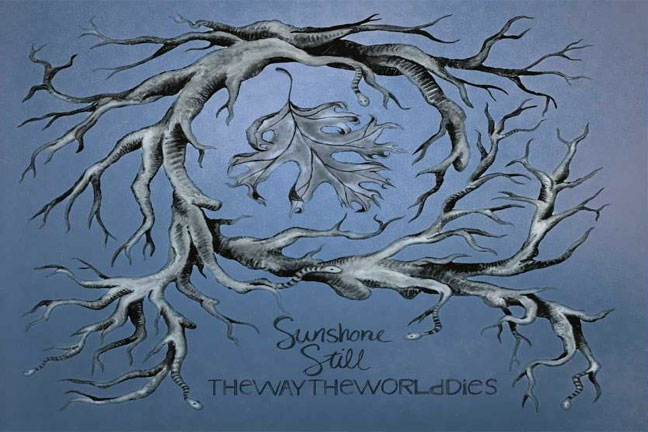 Easily one of the most noteworthy acts in the South Carolina music scene (the group was recently named as one of the standouts from the state by Paste Magazine and has gotten rave reviews from both NPR and No Depression), Sunshone Still is the band/recording project of one Chris Smith, a local business owner who also happens to be a sharp-eyed indie folk-rocker with a love for nylon strings and Nick Drake (the name Sunshone Still is actually derived from one of Drake’s lyrics). In 2007, he produced an ambitious, weighty song cycle on Kit Carson and manifest destiny. Entitled Ten Cent American Novels and written in distinct chapters, the album painted an exquisitely harrowing image of Carson that belies the cheap, one-dimensional tales of its namesake.
Easily one of the most noteworthy acts in the South Carolina music scene (the group was recently named as one of the standouts from the state by Paste Magazine and has gotten rave reviews from both NPR and No Depression), Sunshone Still is the band/recording project of one Chris Smith, a local business owner who also happens to be a sharp-eyed indie folk-rocker with a love for nylon strings and Nick Drake (the name Sunshone Still is actually derived from one of Drake’s lyrics). In 2007, he produced an ambitious, weighty song cycle on Kit Carson and manifest destiny. Entitled Ten Cent American Novels and written in distinct chapters, the album painted an exquisitely harrowing image of Carson that belies the cheap, one-dimensional tales of its namesake.
On that record and one prior, 2005’s Dead Letters, Smith was mainly performing as a 21st century version of his somber hero, with a focus on a spare, intimate atmosphere over more traditional folk-rock. His hushed, beautifully haunting vocals and quiet backing played a big role on these albums, even though Smith was never averse to electric guitar flourishes and a drum kit (particularly on the more elaborate TCAN).
For his most recent effort, however, Smith has upped the ante. While featuring his typically bleak-yet-literate subject matter (many of these songs are inspired by the recent suicide of his brother), Smith for the first time has an electric guitar in his hands more than an acoustic, and it shows. He’s also more willfully experimental than in the past, with a couple of songs that take liberally from the desert Mariachi feel of the Southwest indie rock band Calexico (the trumpet solo on the end of the title cut is particularly awesome) and one tune (“Boot”) that features a blues-industrial loop and a hip-hop bridge that is easily one of the most interesting tracks Smith has ever put to tape.
More than this move away from traditional into a freer sense of experimentation, the move to the electric, full-band approach gives a needed edge to the comfortably dusky and heavily melancholic vocals that are Smith’s trademark. Songs like “Jesus from the Chain,” performed on acoustic guitar, would fit comfortably on his earlier efforts, but add a distorted guitar and some eerily plucked piano notes, and the tune suddenly has a lunging urgency that carries the listener far more effectively to the denouement, where a dark string section and heavily reverbed percussion capture the catharsis in Smith’s enigmatic lyrics.
Other tunes like “I Would Kill” and “8 lbs” are almost straightforwardly country rock enough to make the group sound comfortable in the barroom for the first time, although not a whole lot of dancing would really take place to songs as heavy as these.
The album ends with two cuts that bring the acoustic guitar back to the fore, an appropriate move since the subject moves from grief and mourning to cartharsis and hope. The closing number (“Was and Will Be”), in particular, manages to shift the mood entirely, with a gentle accordion and a great guest vocal from Danielle Howle pushing a gentle lullaby as Smith’s lyrical focus shifts from the loss of his brother to the future of his young son.
It’s a beautiful, well-assembled record whose songs seem tautly bound together in a way that even the concept laden TCAN didn’t. And for my money, its easily one of the best efforts put forth by a Columbia musician this year.

